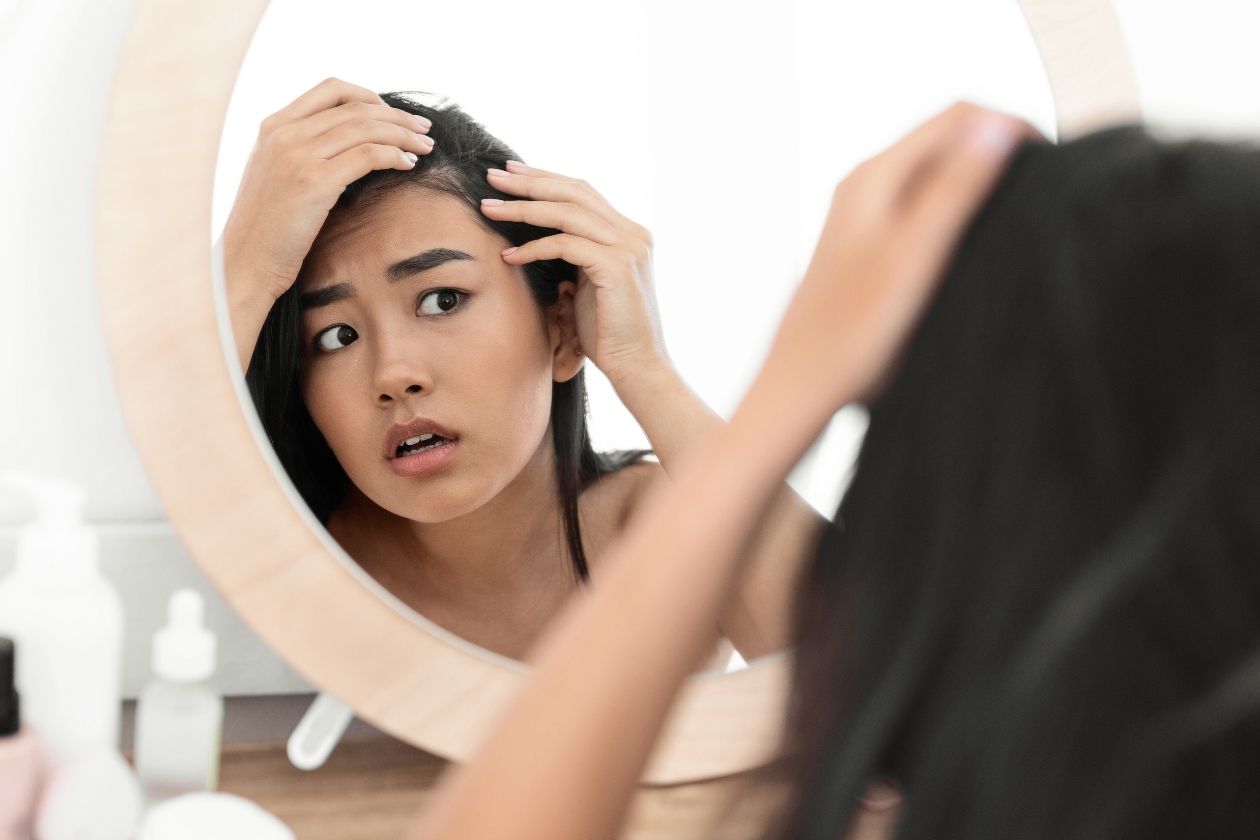If you have dandruff, you shouldn’t feel embarrassed. Why? Because you’re not alone. Dandruff is one of the most common scalp problems in the world. Dandruff is a condition where the scalp produces more flakes than average. These flakes can be itchy and uncomfortable—and they can be highly visible if you have dark-colored hair or wear dark clothing.
Even though dandruff is usually a chronic condition, it’s also a treatable condition. Let’s explore some simple and hair-safe ways to combat dandruff so that you can minimize dandruff without using products that are harmful to your hair.
Table of Contents
Use the Right Haircare Products
When choosing haircare products, look for ones that are easy on the scalp. Harsh formulas can irritate your scalp even more and potentially worsen your dandruff. Herbal anti-dandruff hair gel, shampoo, and conditioner offer the same anti-dandruff qualities as other haircare products without the harsh effects.
Some ingredients you should look for in your haircare products include pyrithione zinc, selenium sulfide, and salicylic acid. These ingredients can slow down skin cell growth (which means fewer flakes), exfoliate the scalp to remove existing flakes, and combat Malassezia, a fungus that feeds on oil and is a common source of dandruff.
Try Natural Remedies
As a disclaimer, none of the following remedies are proven effective. However, anecdotal evidence seems to suggest that they can help control dandruff. And even though these methods aren’t scientifically proven, they’re completely safe and may be worth giving a shot.
Applying aloe vera to your hair might be able to reduce dandruff. Aloe vera has antibacterial and antifungal properties that may help combat Malassezia. Aloe vera is also anti-inflammatory, so it can reduce that uncomfortable, itchy feeling that dandruff causes. A few studies have also shown promising results regarding aloe vera and skin conditions such as psoriasis and cold sores.
Coconut oil also has antimicrobial properties. Plus, it can hydrate the skin, potentially leading to less dryness, itchiness, and flakiness.
Another option is to crush a few tablets of aspirin and apply the dust to your scalp. Aspirin contains salicylic acid, which is an ingredient present in many anti-dandruff shampoos.
Focus on Your Well-Being
The final simple and hair-safe way to combat dandruff is to focus on your mental health. Stress doesn’t cause dandruff, but it can exacerbate many common side effects of dandruff, including dryness and itchiness. Stress can also weaken the immune system. If your dandruff is the result of a fungal infection or non-chronic skin condition, such as seborrheic dermatitis, stress can make it harder for your body to fight these sources off.
Of course, everyone is different. The methods listed above might work for some but not work at all for others. If you have dandruff, don’t rely exclusively on at-home remedies. Consult with your doctor or dermatologist to develop an effective treatment plan.




